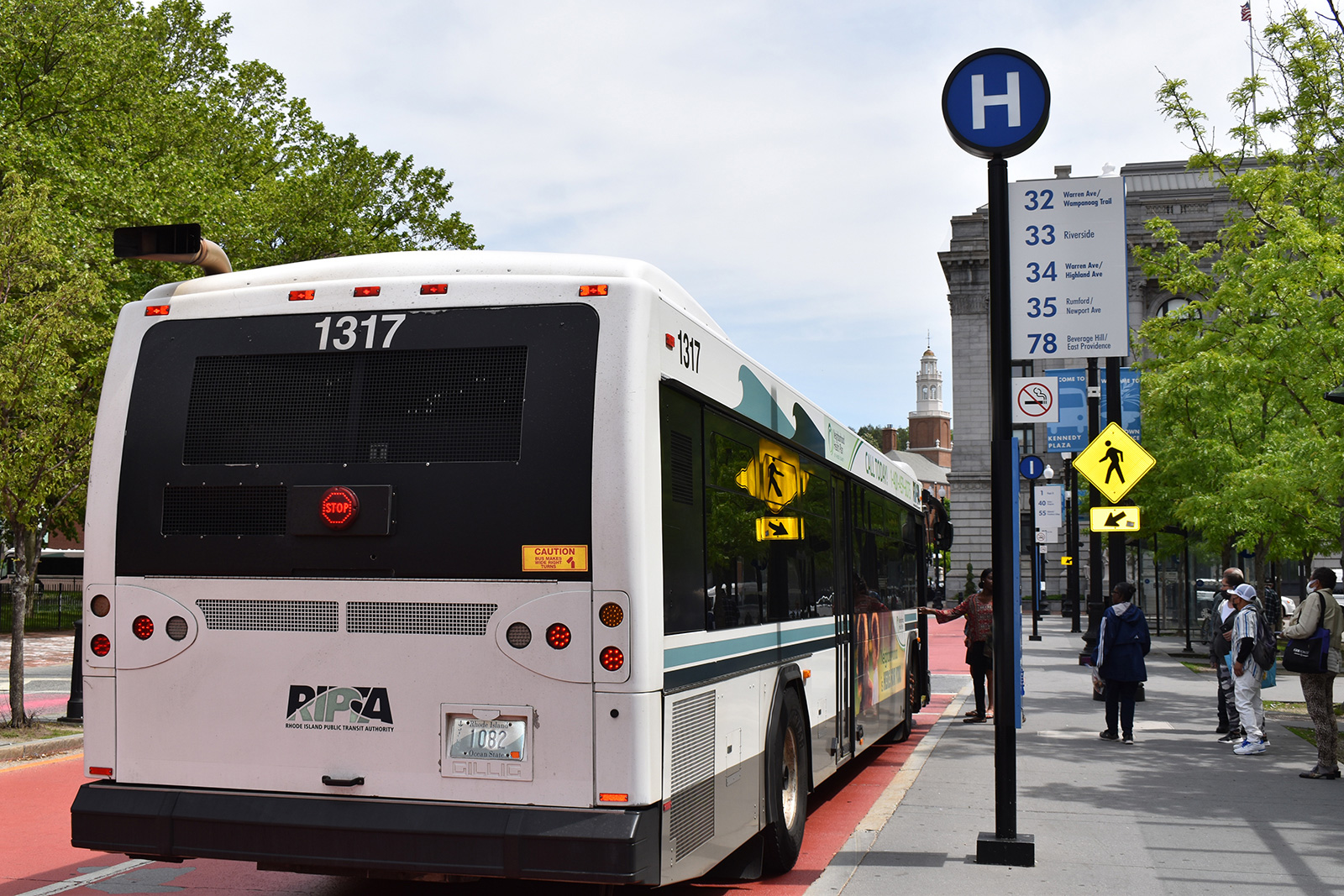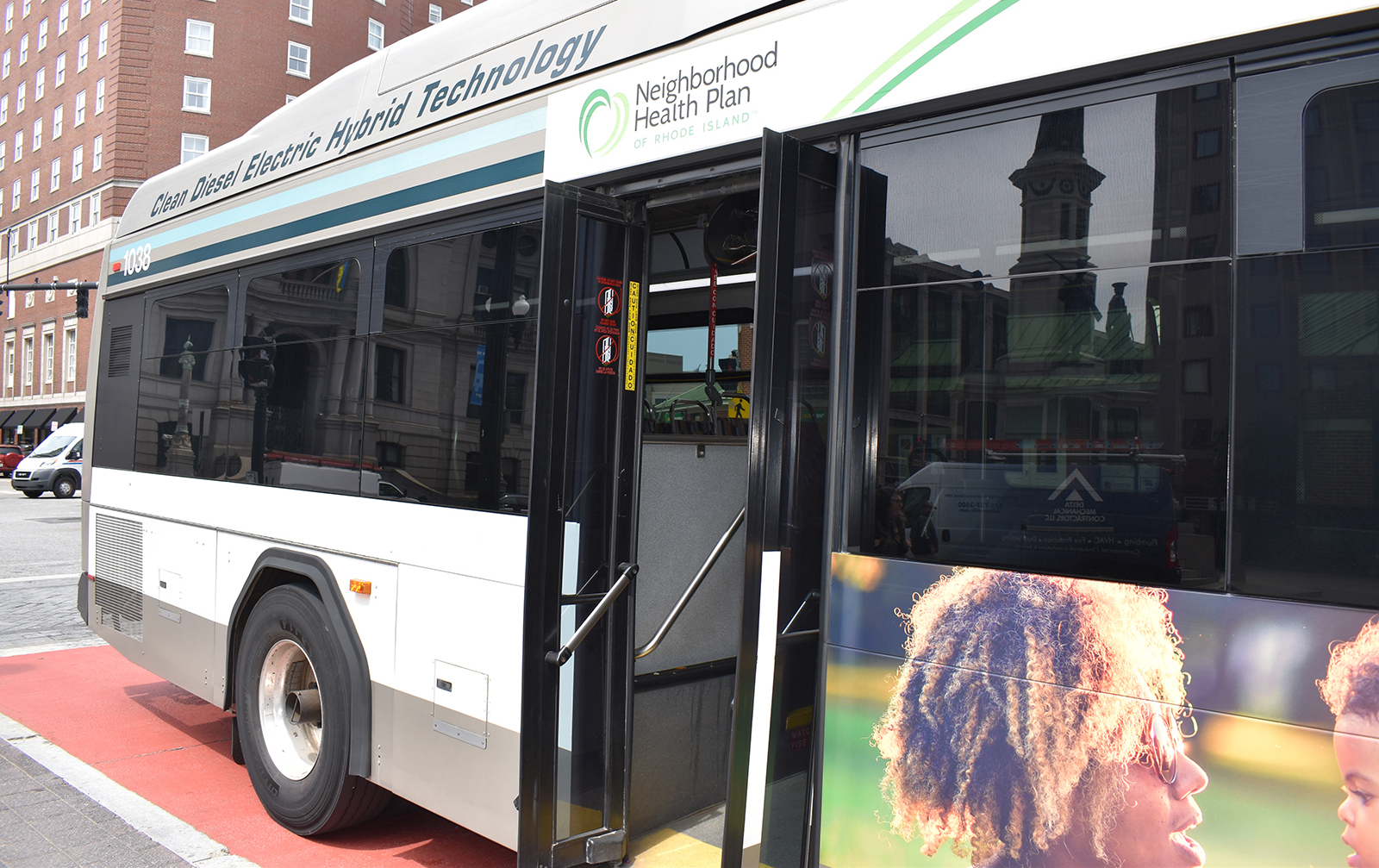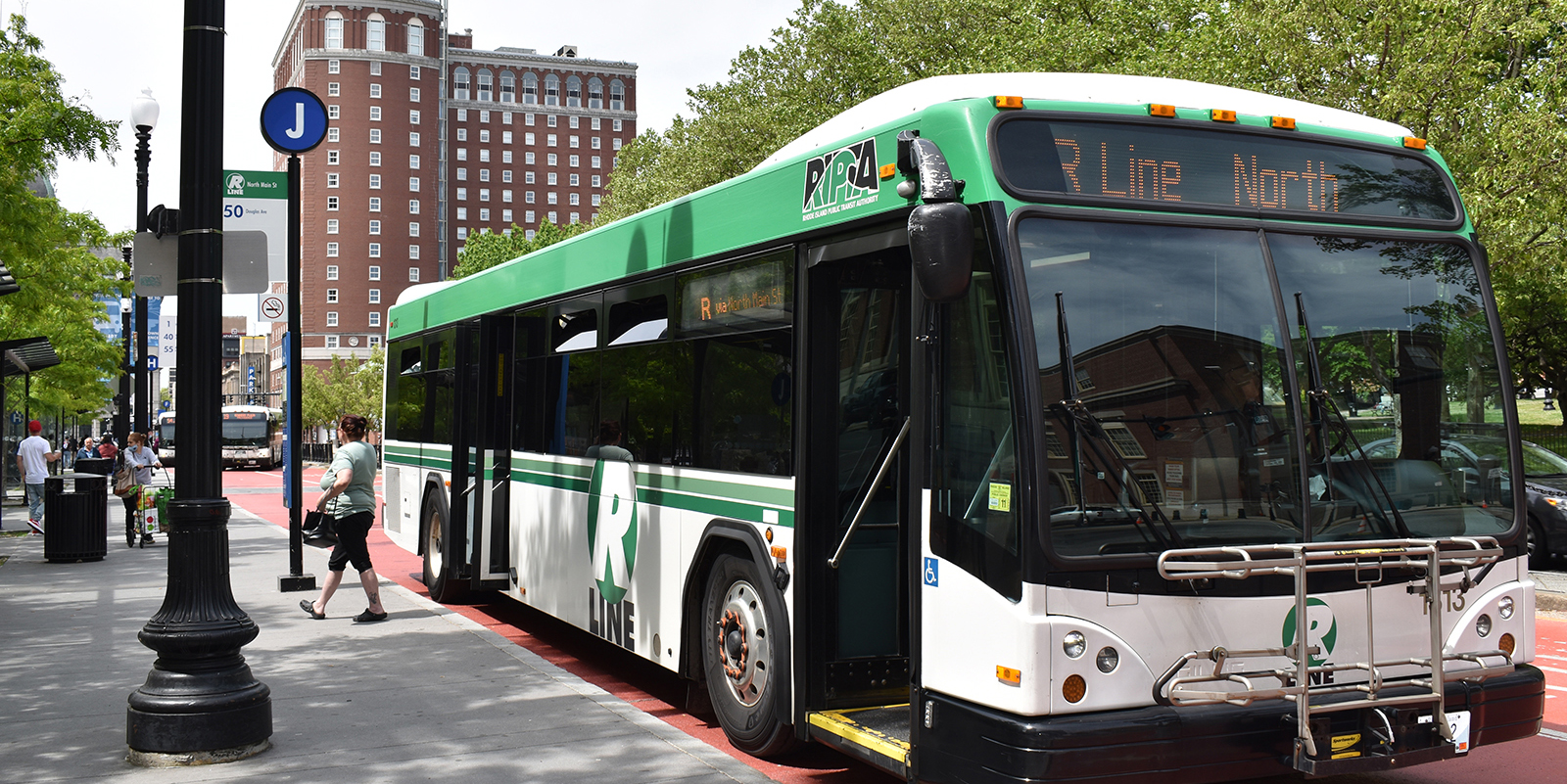‘All Cuts Affect All of Us:’ Everyone Deserves to Be Able to Take the Bus
March 11, 2024

This series looks at people whose lives will be impacted by RIPTA’s proposed service cuts.
PROVIDENCE — If the Rhode Island Public Transit Authority eliminates Saturday service and decreases the frequency of the 18 bus, Traci Picard will have a lot more trouble getting back and forth from her job.
The 18 is just one of several lines on the chopping block as RIPTA attempts to lessen the impacts of an ongoing driver shortage. The agency recently increased wages for operators, but it’s unclear whether that will impact hiring. A RIPTA board vote on the proposed route and service cuts is scheduled for later this month.
The 18 is a “one-seat ride,” said Picard, meaning she can hop on it in her neighborhood and get to Brown University, where she works, without needing a connection. “There’s a very few number of buses that do that.”
Picard could take another route, but that would mean potentially waiting an hour or more for a connection. She’d rather just stick with the 18.
“It sounds like a great luxury, but,” Picard said, “it’s in Providence; there’s no reason why we shouldn’t be able to do that.”
Although Picard agreed to speak with ecoRI News about how the RIPTA cuts would impact her personally, she said it can be frustrating to have to explain why the bus matters to her when she feels it should matter to everyone.
“One of the problems with the way we talk about RIPTA is that we asked individual people to come out and kind of beg and plead and say, you know, ‘Look at me! I matter,’” she said, “rather than kind of look at the whole thing as a holistic issue.

“All cuts affect all of us because it affects the vibe of transit, the use numbers, the connections, the number of people downtown, and number of cars on the road.”
Even without the cuts, Picard said service is already not as frequent as she and others want or need.
The 18, for example, doesn’t run on holidays or Sundays, and the last bus each day is around 7:30 p.m.
RIPTA said lines on the chopping block see low ridership, Picard said, but “there’s low ridership because no person can fully rely on a bus that doesn’t run weekends or holidays and doesn’t run at night.”
On top of the way the RIPTA cuts will affect getting to work and school, Picard also emphasized the bus connects people to all parts of their life.
“I need to get to work but what if we want pleasure? What if we want fun? What if we want to go see the ocean?” Picard said. “I don’t feel like we should have to explain to anyone the reason why we want to go somewhere on a Saturday. A joyful bus ride is just as important as getting to work or school if that’s what you need at that time.”




Firer Alviti
As Picard says, the more they cut, the less reliable they are and the less people take the bus, so they can cut more. . . and the majority of people don’t think about buses anyway. If they have a car, it’s right there. A lot of this is going to take a major change in outlook–from “let’s hop in the car” to “we don’t have to drive–let’s take the bus.” And for that shift to happen, we need more buses running more frequently and longer.